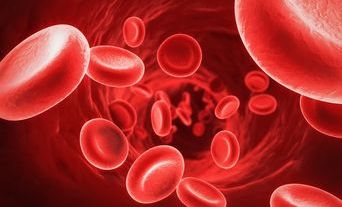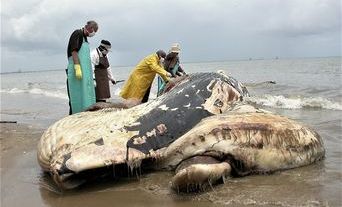So far, the January 2022 issue included profiles of some notable pathologists and their achievements, such as past Presidents Professor Jo Martin and Dr Suzy Lishman CBE. The April and July issues featured highly informative articles on the history, achievements and current work of many of our specialties. We further profiled consultants and trainees across many disciplines, celebrating medical and scientific achievements in the UK and abroad.
The October 2022 issue – as the final edition during the College’s Diamond Jubilee year – now helps complete this theme. We start with a profile of Professor Sir Jonathan Van-Tam who became a very familiar face during the COVID-19 pandemic as England’s Deputy Chief Medical Officer (CMO).
As the mark of a great man, he rather humbly describes his career starting out as having “scraped into medical school at the University of Nottingham in 1982”. After being appointed as a clinical senior lecturer in public health and a consultant epidemiologist in 2002, his journey has involved wide and varied roles in the private and public sector, culminating in his high-profile post as Deputy CMO advising the government with some rather engaging media appearances.
Pulling together the various contributions towards these celebratory articles has been an uplifting and humbling experience.
While he notes his military MBE in 1998 and being awarded a Knighthood in 2022 as particular career highlights, there are clearly so many other notable achievements. It is, however, good to hear him state that “helping younger doctors and scientists with their leadership development and career progression is what really gives me a buzz, more than all the glitz”.
We are also very pleased to profile Dr Noha El Sakka OBE, who started her career in clinical pathology in Egypt and then moved to the UK where she completed her postgraduate training in medical microbiology and a PhD at the University of Aberdeen. She was appointed Director of Microbiology and Virology service soon after her challenging first consultant post and then in 2018 as Specialist Advisor to the Scottish government. She played notable national and regional roles in Scotland during the COVID-19 pandemic.
Her efforts in the face of adversity are clearly remarkable and she has recently been awarded with an OBE for her services to the NHS and the COVID-19 response.
Noha is also the current chair of the Scottish Diagnostic Virology Group, which has been active for more than 60 years. It is appropriate during the College’s Diamond Jubilee year to have a valuable reflection on the history of this group showcasing how scientific virology has risen to the many emerging challenges and has truly evolved with many successes.
I greatly enjoyed reading the article on veterinary forensic pathology by Professor John Cooper who works closely with his wife and colleague, animal law specialist Margaret Cooper. The article explores six decades of advancement with the subject now being a notable inclusion in training and the practice of pathology. The authors also highlight that the College has been true to its aims when founded 60 years ago in supporting the evolving specialties of pathology and welcoming members of the veterinary profession into its ranks.
Professor Jane Apperley, together with Harry Robinson, in their highly informative review on chronic myeloid leukaemia summarise discoveries from the 1960s to the modern day, including targeted therapies that have remarkably ‘restored the life expectancy of most patients to that of the normal population’.
They rightly acknowledge many of the giants in the field but also highlight the great achievements that are feasible with close collaboration between pathologists, clinicians and the pharmaceutical industry striving together towards patient benefit.
We then move on to the article by Professor Marie Scully and Dr John-Paul Westwood entitled ‘Thrombotic thrombocytopenic purpura: past, present and future’. This is a rare disorder but well recognised in its remarkable pathophysiology with microvascular thrombi associated with thrombocytopenia and haemolytic anaemia with fragmented red cells on blood film examination.
The authors indicate how far we have come since the description of the first fatal case in 1924 by Moschcowitz to now understanding the role of ultra large von Willebrand Factor (VWF) multimers and the VWF-cleaving metalloprotease in classification of the subtypes of thrombotic thrombocytopenic purpura. They review the evolution of therapies from steroids to plasma infusion and exchange, to more aggressive immunosuppression with rituximab (an anti-CD20 monoclonal antibody), to the use of the anti-VWF nanobody caplacizumab. Caplacizumab is the current standard of care in the acute thrombotic thrombocytopenic purpura pathway in the UK.
We can take great pride in the collective contribution of so many individuals making a real difference to patients.
Finally, the current year also marks the 20th anniversary of the Systematic Review Initiative (SRI) and here we celebrate its exceptional contribution to developing the evidence base in the field of transfusion medicine. Susan Brunskill and Lise Estcourt highlight the SRI’s critical role in driving forward scientific research that supports clinical practice, including appropriate use of blood towards patient safety and donor care.
The authors are rightly proud of the collective achievements of this programme. It has addressed more than 70 systematic review questions, often using complex statistical methodology and network meta-analysis, with publication of over 240 articles in peer-reviewed scientific journals. They have included helpful examples where the SRI initiatives have made a difference within transfusion medicine, emphasising the collaborative approach needed to identify the key topics subjected to critical scrutiny.
Pulling together the various contributions towards these celebratory articles has been an uplifting and humbling experience. We can take great pride in the collective contribution of so many individuals making a real difference to patients.
However, as we look ahead to yet more challenging times, we all need to strive to maintain a work–life balance and I would like to end by pulling out a quote from Professor Sir Jonathan Van-Tam’s profile. His concluding sentiment is valuable advice for us all: “... remember your roots, who ultimately you are here to serve, and stay grounded”.




